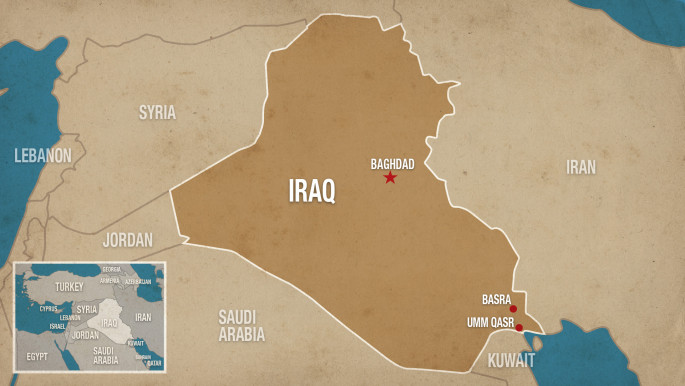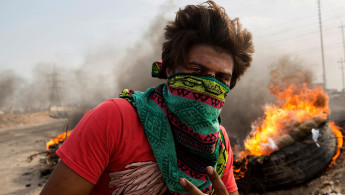More Iraqi protesters killed as Ayatollah Sistani sides with anti-corruption uprising
More than 200 people were also injured in the two cities.
Most of the casualties were due to live gunfire, and Iraqi security forces have also burned tents belonging to protesters.
In a speech read out on his behalf today in the Shia holy city of Najaf, Iraq's foremost Shia cleric, Grand Ayatollah Ali Sistani, praised protesters while holding Iraqi security forces responsible for their deaths.
He added that the Iraqi government must immediately meet protesters' demands.
Sistani said that "Iraqi political factions who hold power now have a unique opportunity to meet protesters' demands according to an agreed roadmap, within a specific period of time".
However, Sistani also said that there were "internal and foreign" factions trying to influence the protests.
The head of the Iraqi Group for Strategic Studies, Wathiq Al-Hashemi, told The New Arab that the influential Shia cleric's remarks could be interpreted as a second chance to Iraq's embattled Prime Minister, Adel Abdel Mahdi, who has been deserted by allies and faced calls to resign.
He said that Sistani wanted to give a message to Abdel Mahdi that he could stay in office for now as long as he made a serious attempt to carry out reforms.
Protests against the Iraqi government began on 1 October.
After a brief lull in the middle of last month they resumed in force on 24 October.
Protesters are angry about endemic corruption, poverty, lack of electricity and other public services, and high rates of unemployment.
The unemployment rate is roughly 25 percent among young Iraqis while Iraq is ranked as the 12th most corrupt country in the world by Transparency International.
Read more: Why are people protesting in Iraq?
The Iraqi government has said it will hold some corrupt officials to account, provide stipends to poor families and job opportunities to poor people, but these reforms have been rejected as cosmetic and insincere by protesters.
| |
Basra itself is located in an oil-rich region of Iraq but suffers from a very high poverty rate of 22.5 percent.
The protests have been described as the biggest challenge to the Iraqi government since the defeat of IS in Iraq in 2017
The nearby port of Umm Qasr has been blockaded by Iraqi protesters for a week. The protesters have prevented lorries from transporting food imports and the Iraqi government estimates that disruption to the port's operation has cost over $6 billion.
In other southern Iraqi cities such as Karbala, Najaf, Diwaniya, Nasiriyah and Amarah, thousands of protesters camped overnight in the main squares. Activists said that security forces have detained many people in Nasiriyah.
Six people were killed in the Iraqi capital Baghdad yesterday by security forces. However, more protesters gathered in the city's iconic Tahrir Square on Friday morning.
People in the square are planning to hold a joint Shia-Sunni Friday prayer and funerals for protesters killed by security forces.
Follow us on Twitter: @The_NewArab





 Follow the Middle East's top stories in English at The New Arab on Google News
Follow the Middle East's top stories in English at The New Arab on Google News
![Both Hamas and the Palestinian Authority welcomed the ICC arrest warrants [Getty]](/sites/default/files/styles/image_330x185/public/2024-11/GettyImages-2178351173.jpg?h=199d8c1f&itok=TV858iVg)

